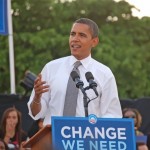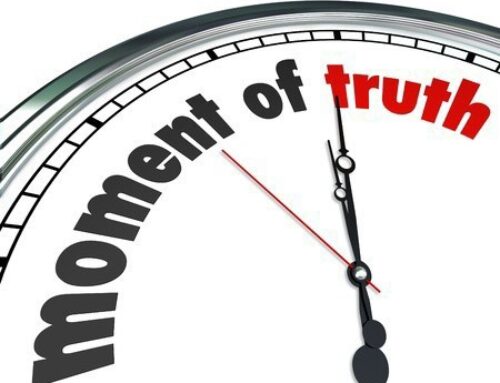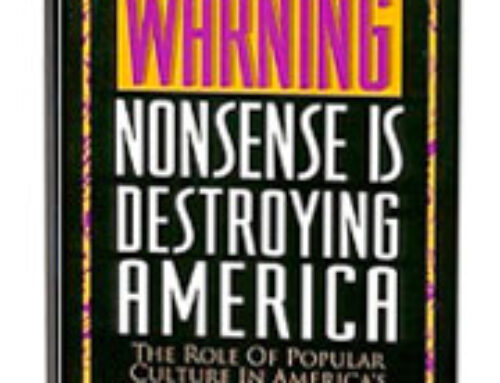 Conservative media regularly criticize President Obama for denying American exceptionalism, for claiming the country needs to be “transformed,” and for apologizing for America. They also continue to probe why he feels as he does about this country. Yet they ignore a question that is in some ways even more interesting—Why does his denigration of America resonate with so many Americans?
Conservative media regularly criticize President Obama for denying American exceptionalism, for claiming the country needs to be “transformed,” and for apologizing for America. They also continue to probe why he feels as he does about this country. Yet they ignore a question that is in some ways even more interesting—Why does his denigration of America resonate with so many Americans?
There is nothing wrong with asking whether the President’s perspective derives from his exposure to socialist theory, his association with Leftists, the influence of his father’s anti-colonialism, or some combination of these. The question I want to address, however, concerns how millions of Americans became so tolerant of Obama’s perspective, which their parents and grandparents would have regarded as misinformed and unpatriotic.
The answer to that question is found in the work of 18th philosopher Jean Jacques Rousseau and that of his 20th century disciple, psychologist Carl Rogers.
Rousseau argued that the source of all corruption in the world is the influence of home, school, church, and other social agencies; also, that feeling is a more trustworthy guide than reasoning. As he put it, “All that I feel to be right, is right; whatever I feel to be wrong is wrong [emphasis added].” Rousseau’s views were influential long after his time, and through Rogers’ efforts they have played a dominant role in our time.
Rogers reaffirmed Rousseau’s view that everyone is born wise and wonderful and everyone’s mistakes and misfortunes are caused by society. Rogers also called the idea of objective truth “a luxury we cannot afford, a myth we dare not maintain.” In his view, truth and morality are found, not in the teachings of philosophers or religious leaders, but solely within the individual.
Rogers advised his followers that the only important question is, “Am I living in a way which is deeply satisfying to me, and which truly expresses me?” And, like Rousseau, he held that emotion is superior to reason. He wrote, “I like the behavioral impulses—appropriate, crazy, achievement-oriented, sexual, murderous. I want to accept all of these feelings, ideas, and impulses as an enriching part of me.”
Rogers’ impact was even greater than Rousseau’s because Rogers had the benefit of the communications revolution. He also lived at a time when psychology was displacing religion as the main source of guidance for the masses. As a result, his ideas were taught in psychology courses, reinforced in dormitory encounter sessions, written about by innumerable self-improvement authors, and endlessly discussed in the burgeoning talk-show industry. They quickly became the zeitgeist—that is, the spirit of the age and the dominant theme of American culture.
The largest generation in American history, Baby-Boomers, grew up with the “Humanistic Psychology” of Carl Rogers. That generation now occupies the highest positions in education, government, business, and the arts. And the ideas that shaped their perspective as children and young adults continue to inform their thoughts and actions today.
These facts suggest why President Obama’s denigration of America resonates with so many Americans, and not just liberal Democrats, but liberal Republicans and many independents as well.
Our culture taught them that they are wise, wonderful, and deserving of the highest esteem. Also, that whatever goes wrong in their lives is never their fault but instead the fault of their parents, teachers, religious leaders, and other authorities—in a word, of society.
These teachings produced the attitude summed up by Jack Weinberger—“Never trust anyone over 30.” That attitude was most prominent in the Counter-Culture movement of the 1960s with its protests against the Vietnam War. But it was more deeply rooted and longer lasting than that movement because of its broad implications. It encouraged disrespect and even contempt for traditional social beliefs and values.
Naturally enough, the disrespect and contempt felt by Americans was directed not so much at societies in general but at the society they knew best, American society. Whatever faults they perceived (or imagined) in their own country were closer and more personal to them than the faults in other countries—even fascist or communist countries—so they seemed more egregious, in much the same way that a hill in front of us seems larger than a towering mountain in the distance.
This attitude toward American society has made many Americans more than ready to believe the worst about the Founding Fathers, the Constitution, our form of government, our system of jurisprudence, our free enterprise system, and virtually everything else in America. Also, at the same time, to minimize or ignore altogether the flaws of other societies.
In short, the cultural tendencies of the last half-century conditioned many Americans to denigrate America before President Obama denigrated it, to deny American exceptionalism before he denied it, to be ashamed of all things American before he apologized to the world for them, and to desire the transformation of America before he began the process.
I am certainly not defending President Obama’s perspective because I believe it is very much in error. Nor am I ignoring the harm that his policies have done to this country. Rather, I am suggesting that America’s greatest problem is not having a president who rejects its ideals and values. It is that many Americans rejected them long before he was elected and will continue to do so after he leaves office. The real challenge is to change their minds.
Copyright © 2014 by Vincent Ryan Ruggiero. All rights reserved

